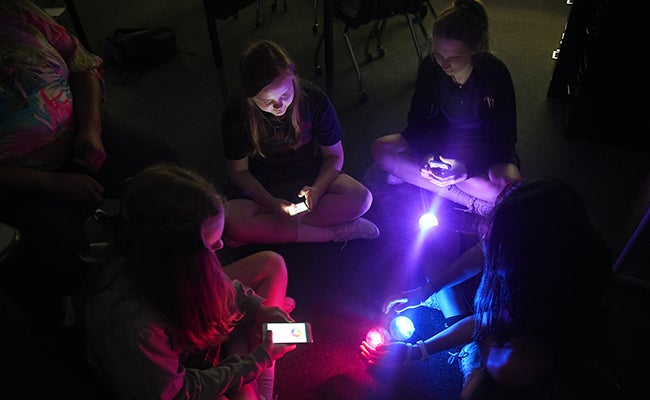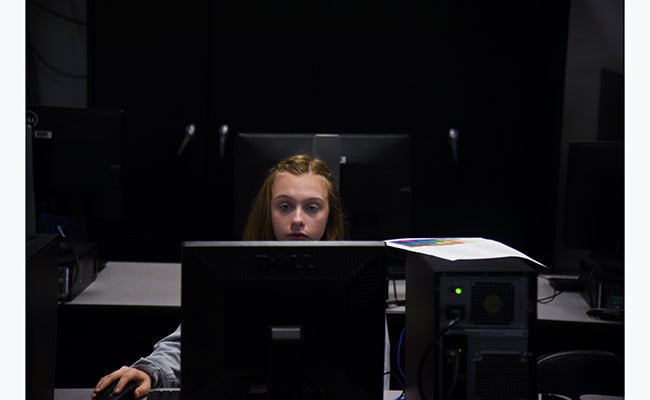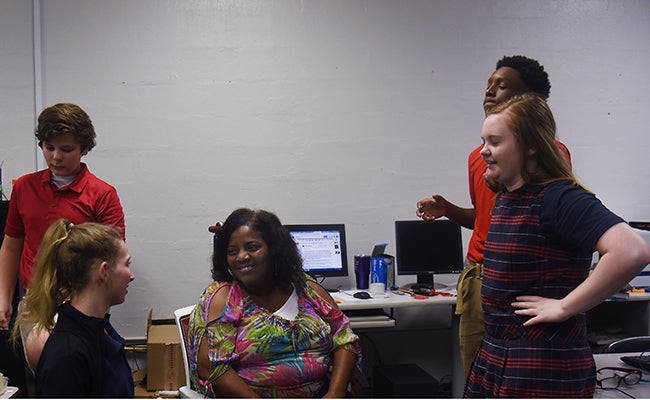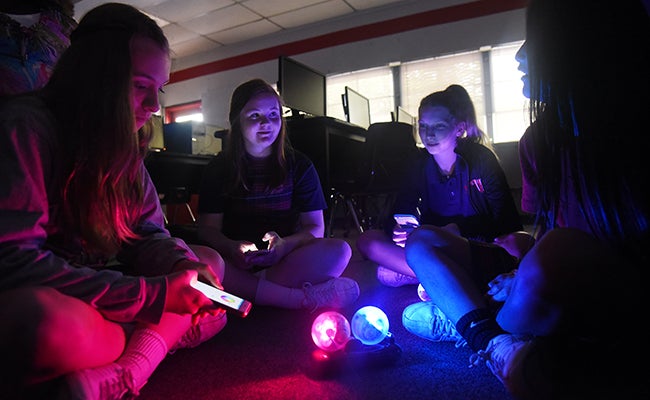Cracking the code: Trinity teaches students coding skills
Published 12:03 am Wednesday, September 20, 2017
NATCHEZ — Students in Connie Hollins’ class are learning more than just computer skills; they’re learning to code.
For the first time at Trinity Episcopal Day School, the students are learning Javascript, a coding language used often in web site and application development, primarily through the control of little, round robots.
With the input of commands, the robots turn circles and change colors, creating a design individual to every student.
Hollins first had the students learn to control the little bots through an interactive app on their phones.
They played games and learned how the machines understood directions from the user.
The robots are not just for fun, however, they’re teaching the children the structure of a command line, Hollins said.The instructions each student imputs on their phone directly translates to a line of Javascript.
Hollins said this hands-on way of learning teaches the students how to structure algorithims.
“It’s so amazing to see what they can do,” Hollins said of her students. “It’s hard for me to even develop a lesson plan for these kids because any given day we come in here and they have an idea, and we chase it.”
Hollins said the students have learned how their imagination can come into play while coding while building on basic skills like math.
Each child designs their bot’s path, deciding at what degree the machine should turn and how far it must travel to reach a destination.
What’s special, Hollins said, is that the students seem to love it.
“When I first talked to my STEM class about coding, some were like ‘Oh no we don’t want coding because I want to become a nurse or a missionary or a teacher or a doctor,’” Hollins said. “We stopped and went through each career and told them how coding could fit into any of their dreams.”
Now she said, when the bell rings and it’s time to log off, they only have one question: “Do we have to leave?”
Hollins said her class is preparing students for the growing field of technology, and that having a background in a coding language prepares them for college at an early age.
United States Department of Education statistics indicate only 16 percent of American high school seniors graduate proficient in mathematics and interested in a science, technology, engineering or mathematics (STEM) career.
And the STEM field is growing; the U.S. Department of Education projected in 2010 that the field would see an increase of 18 percent by 2018.
“What type of jobs are these kids going to have after high school?” Hollins said. “If STEM careers are going to grow by this large percentage, and we start preparing these kids in 4th grade, we’ll have them ready for a STEM career by graduation.”
Hollins graduated with a degree in computer science and applied mathematics from Alcorn State in 1987.
Classes back then, she said, didn’t include Javascript for a simple reason: The programming language hadn’t been invented yet.
So when Christina Ferrell Daugherty asked Hollins to take over the computer class at Trinity Episcopal Day School, Hollins began teaching herself a new language.
“I’m watching YouTube videos, I’m reading books — This is a whole new language for me,” she said.
Hollins began studying Javascript over the summer, but she said the students are catching up just as quickly as she’s learning.
“You want to let them think,” Hollins said. “You want to let them be creative. These kids are so smart. Sometimes their imaginations go places where mine wouldn’t go.”
This fall, Hollins hopes to have her eighth-grader students ready to compete in a congressionally-funded codeathon.
More than 165 members of congress signed up to represent their district in the third annual Congressional App Challenge, which encourgages students to compete by creating apps and programs.
U.S. Rep. Gregg Harper, (R-Miss.) is representing the third district in Mississippi in the competition and will recognize winners personally.
Hollins said her fourth- and fifth-grader students might not be ready this year, but they will be soon.
“We want to these kids to use their imaginations to make a million-dollar app,” Hollins said. “We can’t say they can’t do it here. Because we don’t know.”










